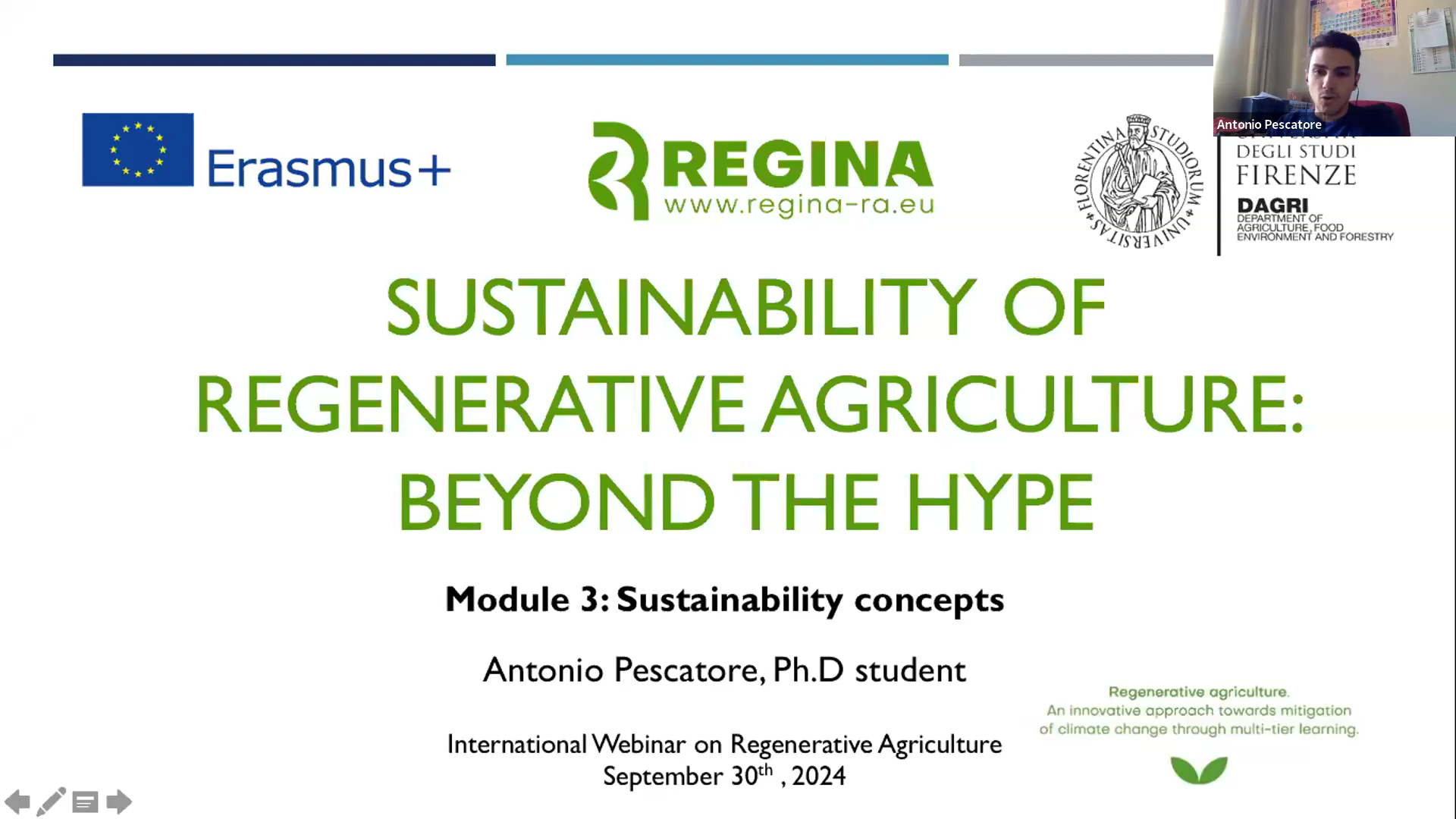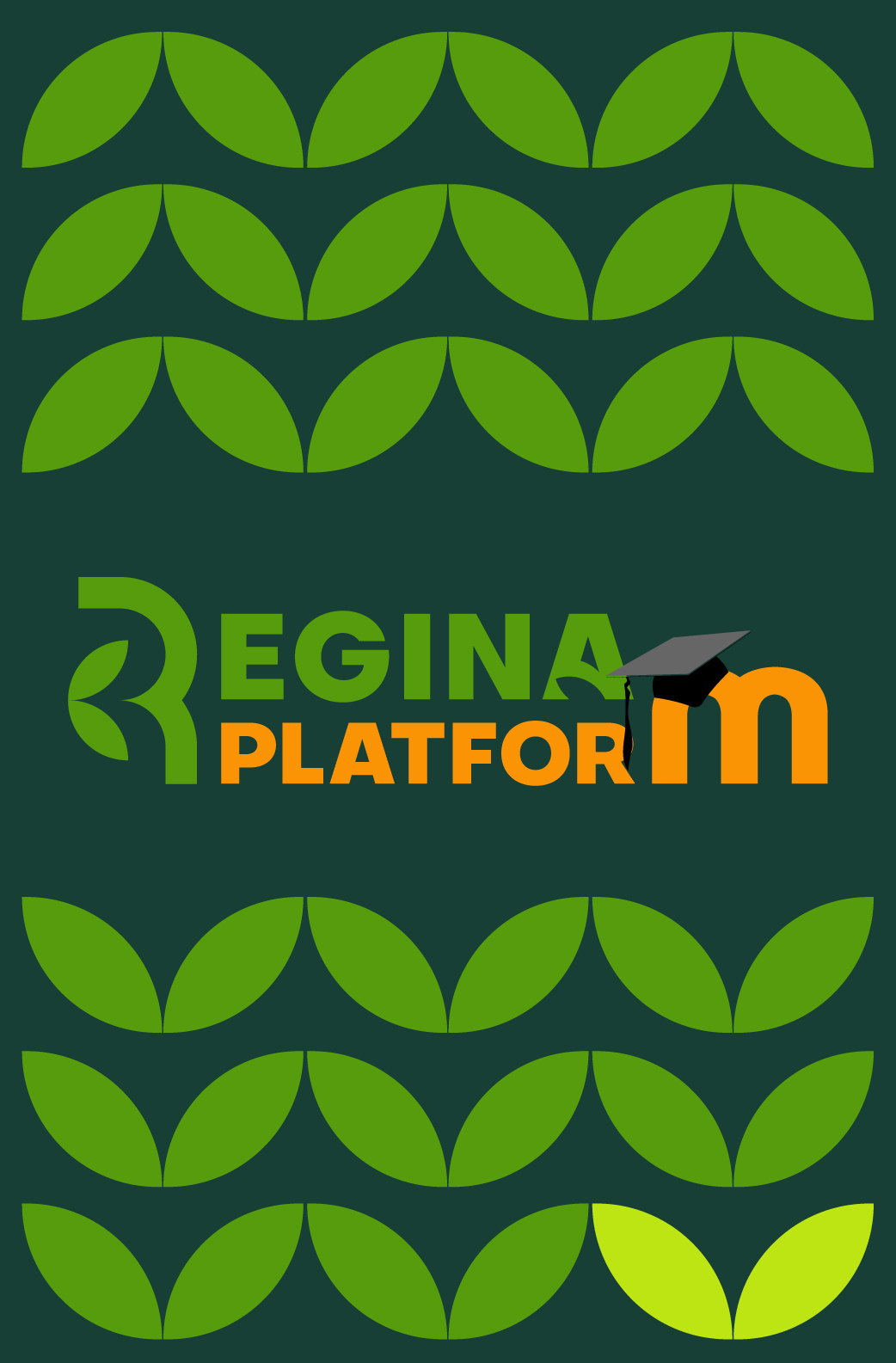International Webinar
As part of the REGINA Erasmus+ project, an international webinar was organized by SECAD Partnership to present results of the project to date and to invite participants from all over Europe to learn about the REGINA platform and the integrated tools it provides. This webinar was also designed to provide an opportunity for feedback and useful inputs to partners to continue and refine their work.
The webinar presentations were delivered by the REGINA project partners and provided an opportunity for attendees to gain insight into the European project research and activity conducted over the last three years. It provided an overview of the freely accessible, online learning modules designed to support and encourage students and practitioners to learn about regenerative farming methods and practices.
This webinar also formed part of a wider campaign to mobilise individuals, key farming stakeholders and rural development and education institutions, to join the REGINA community and utilise the online learning resources available through the REGINA platform. It was designed to support their work, and to promote learning and engagement.
Workshop Objectives:
- To engage a wide cross-section of stakeholders within the farming and agri-community
- To demonstrate and promote the REGINA online learning platform to higher education teachers and students, farmers, rural development agents and relative networks
- To increase awareness of the REGINA project and its aims and objectives
- To nurture local links between research, education, policy makers and practitioners in the fight against climate change
The webinar was recorded and is available for all those interested, including those that were unable to join the webinar live. The language of the webinar was in English.
Welcome & Introduction
The session was opened by Katie Kearns, Rural Development Officer with SECAD Partnership. SECAD Partnership CEO, Ryan Howard, then welcomed participants and speakers and outlined the importance of the project to suport the farming community across Europe and the fight against climate change.


Introduction to REGINA
Patricia Honvári, Széchenyi István University, Hungary
Patricia Honvari is College associate professor of Economics and Environmental Economics at the Budapest Business School (Hungary). As a previous research fellow of the Centre for Economic and Regional Studies, she has more than 10 years of experience of scientific and practical activity in research projects (both national and international, mostly Erasmus, Interreg and Horizon 2020). Patricia holds a PhD in regional studies, with the research topic linked to rural areas, environmental economics, and sustainable development. Also involved in several educational projects, working on the development of digital learning material for different courses. Member of Euracademy Association since 2014, currently the Secretary General.
In her capacity as REGINA Project Lead, Patricia provided an introduction to the REGINA project to the attendees and presented some of the project results to date.
Our speakers then gave an overview of the online learning resources available on the REGINA platform and the four REGINA modules as follows:
Module 1: Regenerative Agriculture Orientation
Presented by Honvári Patrícia, PhD – Associate Professor of Economics and Environmental Economics, Budapest Business School, Hungary
Module 1 is designed to provide students with a comprehensive understanding of the principles and practices of Regenerative Agriculture, as well as the benefits and challenges of implementing these practices, i.e. an introduction to the historical and ecological context of regenerative agriculture, including the role of traditional and indigenous agricultural practices in maintaining healthy ecosystems.

Module 2: Agronomic aspects
Presented by Dr. Rok Mihelic – Biotechnical Faculty, University of Ljubljana, Slovenia
Module 2 is designed to provide a detailed understanding of the agronomic practices and techniques involved in implementing regenerative agriculture on farms, i.e. the agronomic practices and techniques involved in implementing regenerative agriculture on farms, and how these practices contribute to improving soil health, enhancing biodiversity, and increasing productivity and profitability.

Module 3: Sustainability concepts
Presented by Antonio Pescatore – Department of Agriculture, Food, Environment and Forestry (DAGRI), University of Florence, Italy
Module 3 explores the principles and practices of regenerative agriculture from a sustainability perspective, i.e. an approach to farming that seeks to improve soil health, increase biodiversity, and enhance ecosystem resilience.

Module 4: Insights on specific crops & livestock
Presented by Dr. Marco Napoli – Department of Agriculture, Food, Environment and Forestry (DAGRI), University of Florence, Italy
Module 4 provides students with an in-depth understanding of specific crops and livestock in regenerative agriculture, i.e. the unique characteristics and needs of different plants and animals and how they can be integrated into a Regenerative Agriculture system.


The REGINA project (No. 2021-1-HU01-KA220-HED-000027629) was funded by the European Commission. The content of this website does not necessarily reflect the views of the European Commission.
Call 2021, KA220 – Cooperation Partnerships in Higher Education
The European Commission’s support for the production of the publications does not constitute an endorsement of the contents, which reflect the views only of the authors, and the Commission cannot be held responsible for any use which may be made of the information contained therein.

